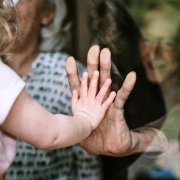Caring Matters
/in News/by Emily RenI have been inspired by the lives of Martin Luther King, Mahatma Gandhi, Abraham Lincoln, Kate Sheppard, Mother Teresa, and Nelson Mandela. At the heart of their lives was a passion to make attractive communities. They are the champions of a compassionate and a free society that we enjoy today. Freedom from discrimination, oppression, and poverty. The picture they paint of a compassionate free society is one of connected, cohesive, and supportive communities, that care for all families in a time of need. All these champions of freedom had a key focus on the right of an individual to be part of an empowered, connected, and protected community. They themselves laboured with such selfless sacrifice to improve the lives of others less fortunate.
I have read the legislation for the End of Life Choice Act 2019. I have also seen many other attempts to bring in a euthanasia legislation, in New Zealand. It seems that the culture that this legislation waits for, is one where the memory of the champions of an empowered, connected, and protected community, have been lost to an individual’s rights in a disconnected society. There seems to be no value to be added to the family, friends, and community, by sharing life’s last battle, with them. I have had the experience of passive euthanasia. This was suggested as an option on day one of our first child’s life. Our suffering with her life-threatening disabilities, could have been avoided by withholding her medication and treatment. An option that may have been taken if not for a connected, cohesive, supportive community, along with family and friends. But life has been better sharing her suffering. Others have benefited from our journey with suffering. Caring matters.
Will legalised euthanasia make us a less caring society? Is it an inevitable product of a self-centred less caring society anyway?
As I read the End of Life Choice Act, I felt grief for the lonely, isolated, and vulnerable people as no aspect of the End of Life Choice Act required consultation with family, friends, or the community. Such a big decision to self-determine the end of life will become a secret shame, for some people, much like the process of suicide. In the Resource Management Act, the required consultation with stakeholders seems to show that we want to protect land and water more than life. The end of life choice is seen as a professional medical solution to a medical problem shrouded under the secrecy of the doctor patient relationship. A free self-centred individual who is given the choice to only see their pain & suffering, and not the pain of the family, friends, and community, who are not given the opportunity to share in that struggle, and journey with the terminally ill’s loss of independence. It is a self-focused assumption to believe that family, friends, and the community would not benefit from sharing the painful journey of every terminally ill person, to some degree. The terminally ill will benefit from having family, friends, and a close community alongside, in all instances, even for part of the consultation process. It is fair to believe that a medical profession dedicated to an oath of protecting life can be trusted. I am sceptical of proper processes by even a regulated medical profession, who are not dedicated to the protecting of life, and can operate in a secretive environment outside of any mandatory involvement of family and friends. Add to that vulnerable people with emotional trauma at a terminal illness diagnosis, and there will be unprovable malpractice. At least unprovable until the evidence becomes overwhelming obvious.
We seem to want to end life in control, not remembering that we began life’s journey empowered by family, friends, work mates, and the community. The end of life choice is an option for the champions of self, who have avoided the painful journey of others, and are seeking a quick solution to their loss of control and independence. This is the exact opposite of those who gave up their time, and in some cases their lives, to empower others. That is the champions of the connected, cohesive, supportive community.
There will be immeasurably more pain in a society with active euthanasia. The grief and loss to the family, friends, work mates, neighbours and community that have not been given the opportunity to show a caring support for the terminally ill, will erode the important values that the champions of an empowering supportive community, fought so hard to gain.
Peter Conaglen
Business Hours
Email us: [email protected]
Monday-Friday: 9am to 5pm
Latest News




